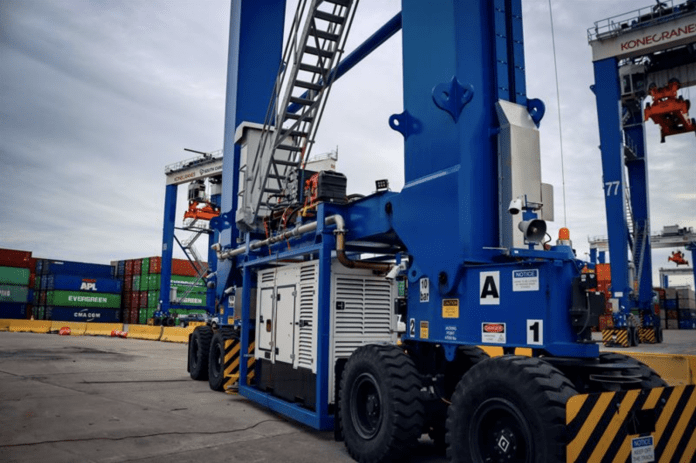Konecranes has signed a contract with South Carolina Ports (SC Ports) for 12 Rubber Tire Gantry (RTG) retrofit hybrid power packs.
After the conduction of a comprehensive testing protocol by West Virginia University (WVU) at SC Ports’ Wando Welch Terminal in April, the US Environmental Protection Agency (EPA) approved Konecranes’ new hybrid technology.
Konecranes partnered with WVU to measure new packs’ RTG exhaust emissions. WVU noted that “carbon monoxide emissions were observed to reduce by over 95% compared with conventional Tier 3 Diesel-electric RTG cranes.”
Using Diesel Emissions Reduction Act (DERA) grants, Korecranes makes its equipment more sustainable as it reduces carbon emissions and lowers operating costs, without compromising performance, according to a statement.
“The decision of SC Ports to opt for Konecranes’ new technology is an indicator of things to come in an industry where the focus is increasingly on finding sustainable ways to stay ahead of growing demand,” stated Vice President of Konecranes’ US Port Services, Scott Lane.
The funding for this diesel-to-hybrid conversion is partially provided through the 2019 DERA grant that was awarded to the South Carolina Department of Health and Environmental Control, in partnership with SC Ports.
The conversion of the 12 20-year-old Konecranes diesel RTG cranes from Charleston will begin in January 2022, complementing Konecranes’ momentum in the region, with over 30 new hybrid RTGs delivered to ports across America since 2020.
“In partnership with Konecranes and through the support of our grant funding, SC Ports will upgrade 12 RTG cranes with hybrid battery/genset engine systems, making them both high performing and energy-efficient,” said SC Ports Chief Operating Officer, Barbara Melvin.







